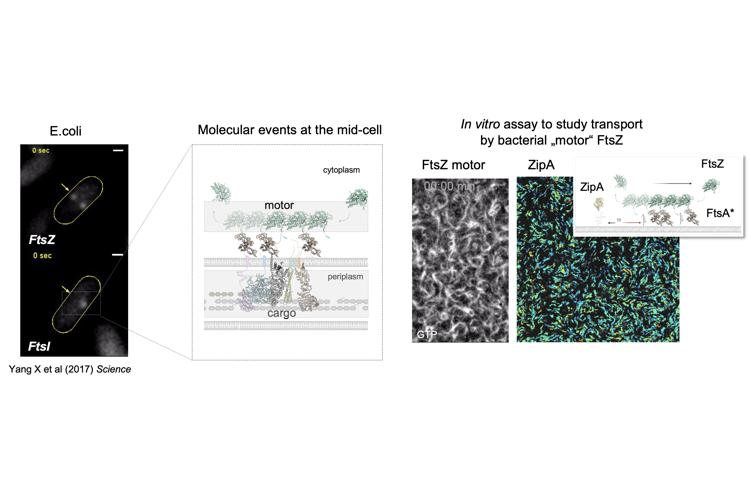- Imprimer
- Partager
- Partager sur Facebook
- Partager sur X
- Partager sur LinkedIn
Séminaire
Le 17 mars 2025

Natalia Baranova (CIC BiomaGUNE, San Sebastian)
Breakthrough in vivo studies have revealed that treadmilling cytoskeleton protein FtsZ could actively move transmembrane peptidoglycan synthases, and that such dynamic coupling is critical for bacterial division. However, the underlying molecular mechanisms behind the coordination are still incomplete, even for a model organism such as E.coli. In our previous work, we reconstituted a part of the bacterial division machinery from purified components and found that membrane-bound proteins can self-organize with the FtsZ filaments into chiral rotating rings on a supported lipid membrane. By employing single-molecule tracking and advanced image analysis, we also identified a molecular component in E.coli that can directionally move with treadmilling FtsZ filaments. By selectively tuning the parameters in the biochemical system, we are presently constructing a biophysical model to explain the mechanism behind such “transport”.
Contact: Delphine Débarre
Date
11:00
Localisation
LIPhy, salle de conférence
- Imprimer
- Partager
- Partager sur Facebook
- Partager sur X
- Partager sur LinkedIn